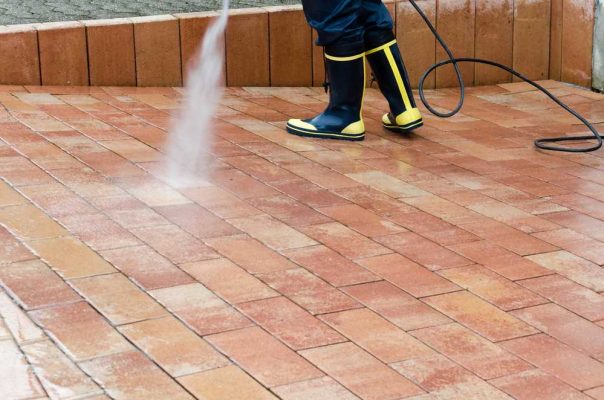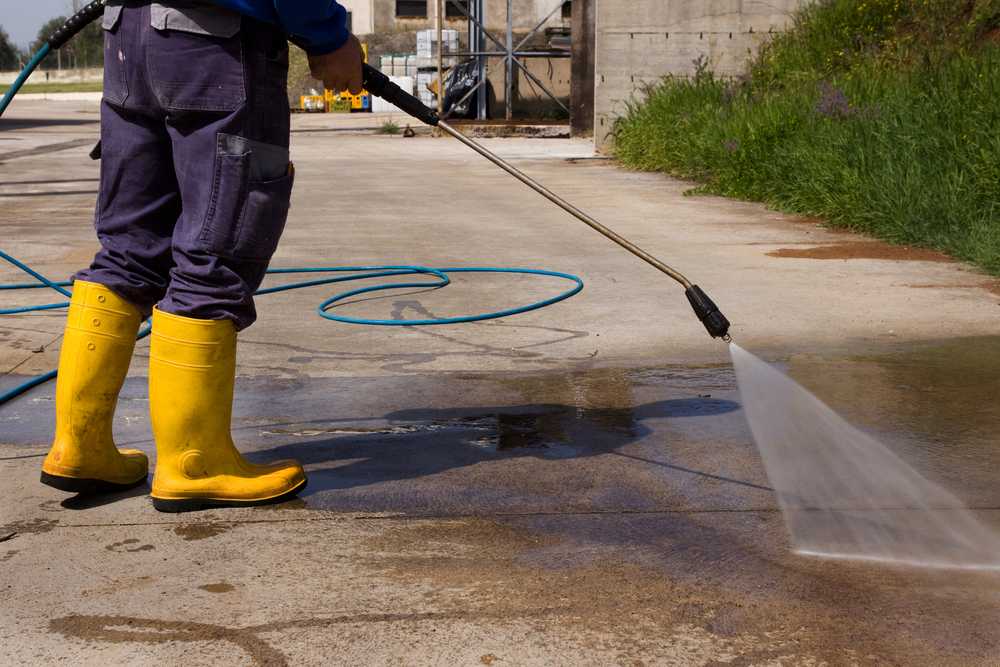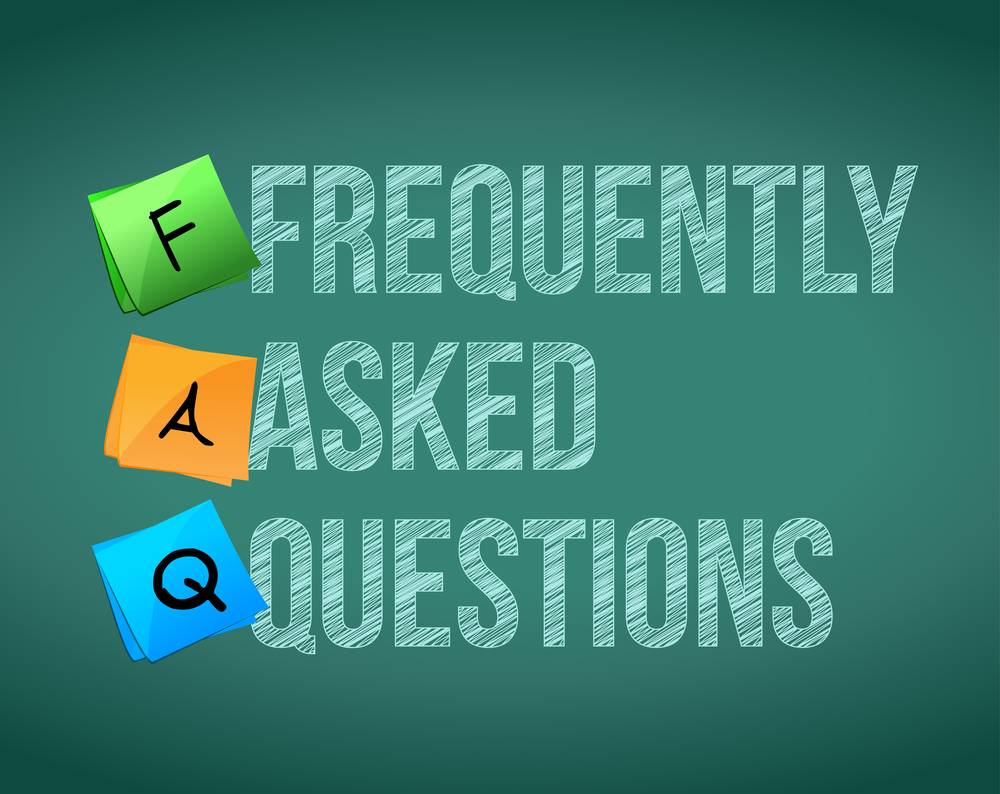Power Washing vs. Pressure Washing

Power and pressure washing for Miami homes and businesses are two common methods of cleaning exterior surfaces, but they are different. While the terms are often used interchangeably, there are distinct differences between the two methods.
This article will explain the differences between power washing and pressure washing and help you determine which method is best for your specific cleaning needs.
Power Washing
Power washing, also known as high-pressure washing, involves forcefully using a powerful pressure washer to spray water onto a surface.
The pressure washer uses a high-pressure pump to increase the water pressure, which allows the water to remove dirt, grime, and other debris more effectively.
Power washing is used to clean decks, patios, and exterior walls and is particularly effective at removing tough stains and mildew.
Pros of Power Washing
The cleaning Effect is More Intense than Pressure Washing
Power washing has a more intense cleaning effect than pressure washing because of the higher pressure, which makes it suitable for tough surfaces and can withstand high pressure, such as decks and patios.
Removes Tough Stains and Debris from Surfaces Quickly and Efficiently
Power washing is particularly effective at removing tough stains and mildew because of the high-pressure and hot water. The high pressure of the water spray and temperature helps to break down and remove dirt and grime, making it a quick and efficient cleaning method.
Can be Used to Clean a Wide Variety of Surfaces
Power washing can clean various surfaces, such as driveways, patios, decks, and siding. It’s versatile and can be used to clean different surfaces, making it a great option for those who want to clean multiple surfaces simultaneously.
Biodegradable Detergents can be added to the Water for Better Cleaning Power.
Power washing can also include using biodegradable detergents that can be added to the water for better cleaning power. This allows even more effective removal of dirt, grime, and stains without harsh chemicals, making it an eco-friendly option.
Eco-friendly Way of Cleaning that Does not Require the Use of Harsh Chemicals
Power washing is an eco-friendly way of cleaning because it does not require harsh chemicals. Instead, it uses high-pressure water and, if necessary, biodegradable detergents to remove dirt and grime. This makes it a safe and environmentally friendly option for cleaning exterior surfaces.
Cons of Power Washing
Risk of Damage to Surfaces
One of the main cons of power washing is the risk of damage to the surface being cleaned. The high pressure of the water spray can cause damage to delicate surfaces, such as paint, wood, and brick.
It’s important to be cautious when using power washing equipment and to adjust the pressure and nozzle to suit the clean surface.
Noise Pollution
Power washing equipment can be quite loud, which can be a nuisance to neighbors and anyone in the vicinity of the cleaning. It’s important to be mindful of the time of day and to let your neighbors know if you plan to power wash your property.
Risk of Injury
Power washing equipment can be dangerous if used improperly. The high-pressure water spray can cause injury, and always wear protective gear, such as safety goggles and gloves, when using power washing equipment.
Water Usage
Power washing uses a large amount of water, which can concern those living in areas where water is scarce. It’s important to be mindful of water usage and to consider alternative cleaning methods, such as pressure washing if water conservation is a concern.
Cost
Power washing equipment can be expensive and may not be an option for those on a tight budget. The cost of the equipment, water usage, and the detergents used can make power washing a costly cleaning method. It’s important to consider the cost before deciding to use power washing.
It’s important to weigh the pros and cons of power washing before deciding to use it. Power washing can effectively clean exterior surfaces, but it’s important to be cautious when using the equipment and to consider the potential risks and drawbacks.
It’s always better to consult a professional and consider alternative cleaning methods before using power washing.

Pressure Washing
On the other hand, pressure washing involves using a lower-pressure spray to clean surfaces.
The pressure washer uses a lower-pressure pump, which reduces the force of the water spray.
Pros of Pressure Washing
Reachability
Pressure cleaning allows for reaching tight and hard-to-reach areas that may be difficult or impossible to clean with other methods.
Versatility
Pressure cleaning can be used on various surfaces, such as concrete, siding, decks, and patios. This allows for a wide range of cleaning applications.
Efficiency
Pressure cleaning removes dirt and debris quickly and efficiently, saving time and effort compared to other cleaning methods.
Chemical-Free Cleaning
Pressure cleaning does not require harsh chemicals, making it a safer and more environmentally friendly option.
Precise Control
Pressure cleaning allows for precise control over the pressure being applied to the surface, providing the ability to adjust the pressure to match the specific cleaning needs of the surface. This also helps to prevent damage to the surface being cleaned.
Cons of Pressure Washing
Damage to Soft Surfaces
High pressure can damage soft surfaces such as wood, drywall, and painted surfaces, making it important to be careful when using pressure cleaning on these types of surfaces.
Peeling Paint
Pressure cleaning can cause paint to chip off from walls and other surfaces, making it important to be cautious when cleaning painted surfaces.
Water Usage
Pressure cleaning uses large amounts of water, leading to flooding or runoff if not used properly. It is important to be mindful of water usage and properly dispose of the water used during cleaning.
Time-Consuming and Labor Intensive
Pressure cleaning can be time-consuming and labor-intensive, requiring a significant investment of time and energy.
Safety Risks
Pressure cleaning can potentially be dangerous for the user if not handled correctly, such as improper equipment handling and lack of training, making it important to take necessary safety precautions when using pressure cleaning equipment.

Frequently Asked Questions (FAQs)
Is Power Washing Better Than Pressure Washing?
It depends on the specific cleaning task at hand. Power washing and pressure washing are similar in that they use high-pressure water to clean surfaces, but power washing typically uses hotter water and higher pressure.
Do Power Washers Use Their Water?
Power washers typically use a pressurized water source, such as a garden hose or a water tank, to generate the high-pressure water needed for cleaning.
What Does Power Washing Do?
Power washing is a method of cleaning that uses high-pressure water to remove dirt, grime, mildew, and other types of buildup from various surfaces, such as concrete, brick, wood, and more.
Is Power Washing A Good Idea?
Power washing can be a good idea, especially for heavy-duty cleaning tasks such as removing stubborn stains or grease.
However, it is important to consider the type of surface being cleaned and the specific cleaning needs, as power washing can be too harsh for certain types of surfaces, such as wood and drywall.
Final Verdict: Power Washing vs. Pressure Washing
In conclusion, power and pressure washing are two common methods of cleaning exterior surfaces for homes and businesses in Miami, but they have different methods and applications.
Power washing is more intense and efficient in removing tough stains, mildew, and debris, while pressure washing is more versatile and suitable for lighter cleaning tasks.
Power washing also can use biodegradable detergents to enhance cleaning power. However, it’s important to consider the potential risks of surface damage, noise pollution, injury, and cost before power washing.

